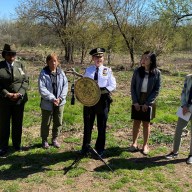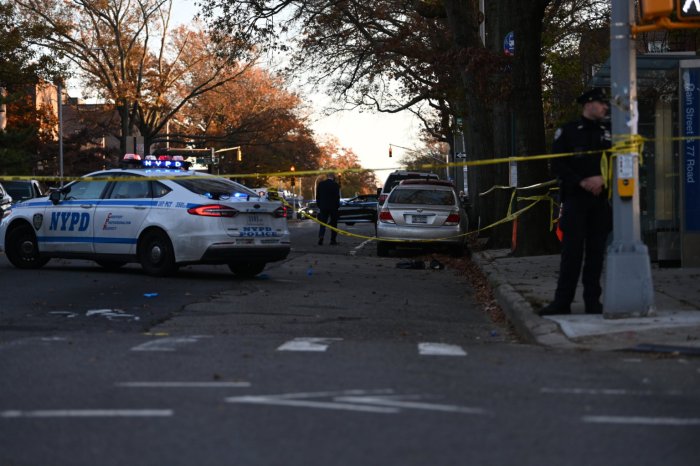By Bryan Schwartzman
But Cathy Mickens, the director of the Neighborhood Housing Services Jamaica office, said her organization with the help of banks and insurance companies have worked to improve the neighborhood and empower homeowners.
“Home ownership is the key to stabilization of a neighborhood,” said Mickens, who has headed the office since 1984.
“We are all working towards the same goal,” said Mickens, referring to the banks, insurance companies and residents. “They are not giving us money, they are partners with us.”
NHS is a community-based organization which helps middle- and low-income homeowners acquire favorable loans for home improvement projects.
“This is the best kept secret in the city of New York,” said state Sen. Malcolm Smith (D-St. Albans), a former president of NHS's board of directors. “It supports the acquisition of and rehab of affordable housing for residents.”
Mickens said NHS also offers a variety of educational services, ranging from classes on fire and theft insurance to home improvement courses. But the main goal of the office is to help residents through the process of home improvement.
“We try to encourage everyone to get at least three bids,” she said during a recent interview at the NHS office on 162nd Street. “We tell them to keep things within reach. We don't want homeowners overextending themselves financially.”
The Jamaica office of NHS, which has offices nationwide and two others in Queens, recently received a $5,000 award from the state Division of Housing and Community Renewal.
The money was given to neighborhood organizations that demonstrated community need, business strategies, and innovative fund-raising, according to a release from DHCR.
“We are going to use the money for outreach,” she said.
In the spring volunteers for the group will ring bells and knock on doors, letting southeast Queens residents know about the organization. Mickens said the group hopes to reach seniors who may be having the most difficulty maintaining their homes.
Mickens is at the edge of her seat waiting for data from the 2000 Census. She said the number of housing units in southeast Queens has greatly increased as has the number of immigrants, particularly from the Caribbean and Africa.
“We want to create a home buyers' club just for immigrants,” she said.
The club would have regular meetings where new homeowners who are recent immigrants would attend classes about various aspects of home ownership.
While the changes in demographics have diversified the area and made it more interesting, they have also been responsible for an increased number of illegal conversions.
The Jamaica office is working with its counterparts in Richmond Hill and Woodside to come up with a program to address illegal conversion
Illegal conversion of housing units has been a thorny issue in Richmond Hill, where a strong concentration of Indo-Guyanese immigrants has complained of being unfairly targeted for violating conversion laws.
Mickens said the three offices want to set up a program where residents can receive loans to convert basements or attics back to their legal use. The program would also help residents avoid civil fines or penalties.
“Residents are very reluctant to come forward,” she said.




























